The “Food of the Gods” is now available for anyone.
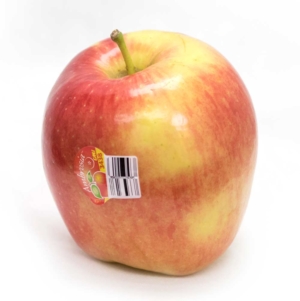
The U.S. patent
on the Ambrosia
apple, the popular
Canadian variety
known for its sweet
flavor and blush color,
expires this month, meaning nurseries will start propagating it for all growers later this summer. (TJ Mullinax/Good Fruit Grower)
The 20-year patent on the Ambrosia apple expires this month, opening up a popular and profitable club variety to all growers.
The expiration means all licensed nurseries will be allowed to produce budwood for planting or grafting by growers in spring 2019. The nurseries will likely start propagation this August. Growers have already started preparing ground in places.
The variety, developed by a Canadian orchard family from a chance seedling, is managed by Summerland Varieties Corporation of Summerland, British Columbia.
Since 2005, McDougall & Sons of Wenatchee, Washington, has held the exclusive U.S. license to produce Ambrosias, though a few orchardists who had been growing the apple before that were allowed to continue under a grandfather clause.
Scott McDougall, co-president of the company, declined to discuss the patent expiration.
However, he said Ambrosia, like any variety, has some unique growing quirks.
The sweet midseason apple with cream yellow ground and blush over-color has a narrow harvest window, prompting his company to avoid planting other varieties that would harvest about the same time to avoid spreading his labor too thin.
His sales firm confirmed that trait.
“If you don’t nail that harvest window, you’ve got a mess on your hands,” said Steve Lutz, senior strategist for Columbia Marketing International, which markets McDougall’s fruit.
McDougall has years of experience with the fruit, Lutz said.
New growers may not produce the same quality right out of the gate and risk hurting the variety’s reputation in the marketplace. “As we look at Ambrosia opening up, that’s what worries me.”
With 1.2 million boxes shipped, the Ambrosia already was Washington’s 10th most popular apple in the 2015-2016 season, according to the Washington State Tree Fruit Association.
It’s British Columbia’s second most common apple with 460,000 42-pounds boxes packed in 2014, according to the province’s Ministry of Agriculture.
Nick Ibuki, operations manager for Summerland Varieties, also cautioned interested growers to choose sites wisely.
“Ambrosia is a bicolored apple and it can be very challenging to get color, especially in warm sites,” he said. “South of Quincy (Washington) growers may want to consider their locations carefully. Even in the south Okanagan/Similkameen, color can be a challenge.”
Outside the United States, the patent protection has different durations. In Canada, protections expired in 2015, but they have several years remaining in Europe.
“Ambrosia is a truly amazing variety when grown in the right locations,” Ibuki said. However, he added that “if U.S. growers don’t do their homework on this variety they can lose money big time.
Over the last 20 years we have learned a lot of lessons from this variety, some quite costly.”
He encourages growers to contact the company to ask questions before ordering trees. •
– by Ross Courtney

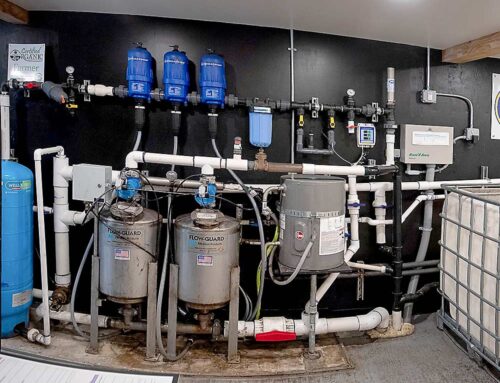
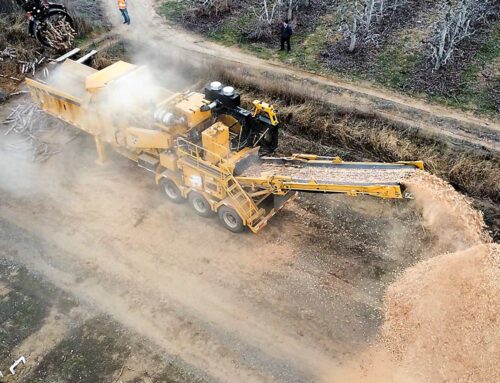
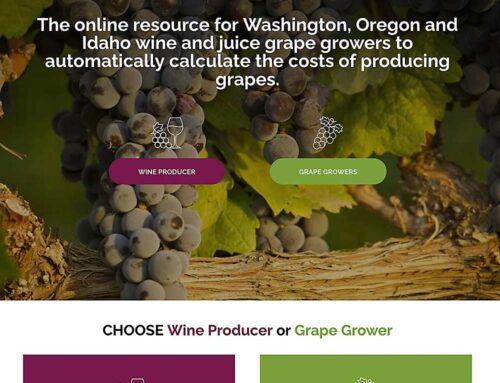
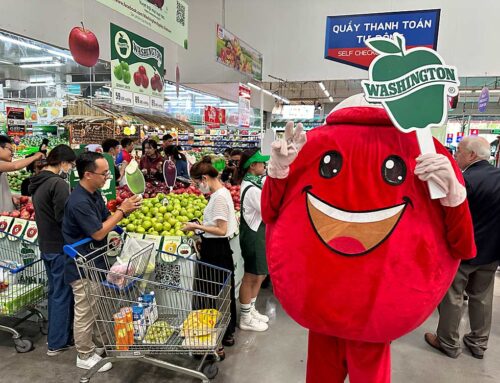

Can I get some few seeds of ambrosia apple seeds for growing in my hometown? Please kindly respond.
I’d try contacting a nursery that sells fruit trees in your area. They should be able to answer your questions and help you locate what you want.